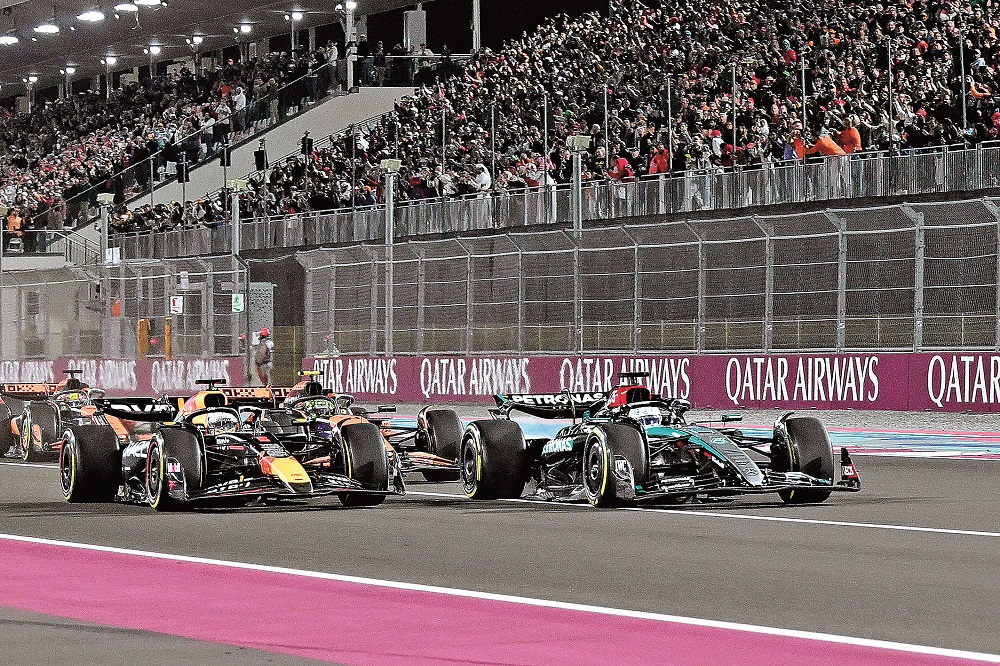F1 enjoying surge of support in Middle East


Formula One is enjoying a surge of support in the Middle East, with younger female fans the fastest growing demographic globally, according to data published by Nielsen Sports on Tuesday.
The Gulf region has four races, one more than the United States, in a season that ends this weekend at Abu Dhabi's Yas Marina Circuit with McLaren and Ferrari fighting for the constructors' title.
The figures showed female interest in Saudi Arabia increasing by 11 percent compared to last year, and 10 percent among men, with the biggest growth in the 50-69 year age bracket.
Jeddah hosted a race for the first time in 2021, and Saudi energy giant Aramco sponsors Aston Martin, as well as the sport as a whole.
"New sponsor categories are opening up. We're seeing a significant shift in the brands engaging in the sport attracted to this changing fan demographic," said Nielsen Sports' global general manager Jon Stainer.
Nielsen said that one in four of the 46,000 people surveyed across 37 international markets claimed to have become fans of F1 after watching the Netflix docuseries Drive to Survive.
The data showed 41 percent of F1 fans were female, with those aged 16-24 the fastest growing group.
Nielsen said that F1 was now the most popular annual sporting series, with more than 750 million fans worldwide. Global interest since 2021 has risen by 5.7 percent, or 50 million people.
The average team sponsorship deal rose 56 percent over pre-pandemic levels, from $2.87 million in 2019 to $5.08 million now, and with an average duration of 3.2 years compared to a previous 5.2.
There was also a more diversified array of sponsorship, ranging from crypto to luxury LVMH brands.
Technology sponsors made up 20 percent of the spend, compared to three percent in 2019, while the contribution of financial services to all sponsorship revenue grew from two percent to 17 percent.
Title partners of top teams generated on average more than $6 million in media value per race, according to Nielsen's own metric.
F1 also continued to grow in established European markets, up 2.3 percent in Britain and 4.5 percent in Germany over last year.
Germany, home of Mercedes and Audi, currently has no race nor a winning driver.
"Formula One is a perfect example of a rights owner innovating its relationship with fans," said Stainer.
"Growth of interest, especially among women and newer markets like Saudi Arabia, can be attributed largely by a shift in how the teams and drivers are profiled today, and the access they are affording global audiences."
REUTERS
Most Popular
- Sabalenka wins US Open women's singles title
- 17th Shanghai International Popular Sports Festival blends sports and tourism in Lin-gang
- First edition of Sichuan City Football League kicks off this month
- World Cup tickets to cost from $60 to $6,730
- All-Star Game may adopt US vs International format
- Howard recognized by Hall of Fame





























